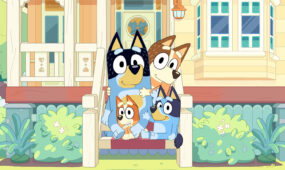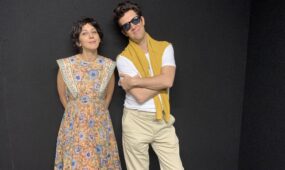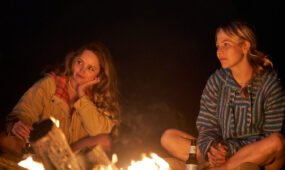Adelaide censorship film vies for awards
Film & TV
Young Adelaide filmmaker Henry Thong’s mission to create a short film exploring free speech and censorship was prompted by two international events: the terrorist attack on French satirical paper Charlie Hebdo and the hacking of Sony Pictures data.

“The Sony hack [which led to terrorist threats surrounding the release of a film about North Korea] and the Charlie Hebdo attack made me realise that, as a film-maker, the stories I might one day wish to tell could be censored by external forces,” Thong says.
“I was motivated to raise awareness about the importance of free speech and creative expression.
“The ability to tell a story, whether it’s significant on a personal level or a global one, is something I strongly believe in.”
The 19-year-old teamed up with co-producer Wangechi Ngige and sound designer/composer Josh Warry to create the documentary Content Censored, which will screen at the St Kilda Film Festival in Melbourne next week.
Along with another South Australian film, Junction, directed and produced by Nathan and Luke Jurevicius, Content Censored has been listed among Australia’s top 100 short films at the festival, where it will compete for awards including best short film and best documentary. Festival award winners are eligible for consideration for the Oscars.
Thong has made several other films – including the award-winning LEAP and The Girl in the Camera – but says the latest project was his most challenging yet, both financially and logistically.
“I’d never before made a film that explored such current and controversial socio-cultural issues, and it was a challenge to present them in a way that was thought-provoking, but also intellectual and sophisticated.”
The team travelled interstate and to Los Angeles and New York to interview other filmmakers, television producers and cartoonists, including Alan Moir (Walkley Award-winning cartoonist for the Sydney Morning Herald) and Don Hahn (producer of films such as Beauty and the Beast and The Lion King).
Henry says that during their research, they discovered that censorship did indeed “loom large” over people’s storytelling.
“Yes,” Ngige adds, “but when we started doing the research we discovered that censorship was an age-old problem that media makers had been facing.
“The big difference was the use of technology in informing people censorship had occurred … a society should never be numb to this.”
Warry says the film also encourages people to think about free speech in everyday life.
“The conversations we have with others, for example. Free speech is something that is relevant to every single member of society – and it’s important that we discuss whether there should be a limit – and if so, where – to what we can or cannot say.”

Get InReview in your inbox – free each Saturday. Local arts and culture – covered.
Thanks for signing up to the InReview newsletter.
Thong, Ngige and Warry are now working on launching a start-up production house with a collective of Adelaide-based creatives. In the meantime, though, they are excited to see how Content Censored will be received at the St Kilda Film Festival.
“Whether the film sparks a casual conversation regarding censorship over the dinner table, or inspires somebody to get into some rigorous academic research into the different perspectives on censorship, it all matters,” Warry says.
Content Censored airs on the opening night of the St Kilda Film Festival on May 19 at the Palais Theatre in Melbourne. Thong and Ngige will also speak at a forum on May 21.
Support local arts journalism
Your support will help us continue the important work of InReview in publishing free professional journalism that celebrates, interrogates and amplifies arts and culture in South Australia.
Donate Here





Comments
Show comments Hide comments